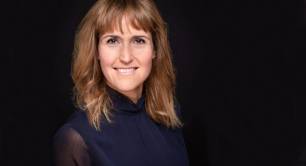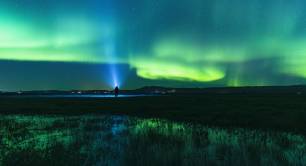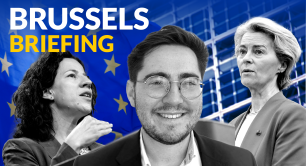Europe's impact investor community confronts the ‘polycrisis’ at Impact Week
Delegates at Impact Europe’s 2025 conference, held in the Swedish city of Malmö, search for impact solutions to ‘light the way’ to a brighter future.

As the snow fell heavily outside the Swedish city of Malmö’s former slaughterhouse, now converted into a theatre and conference centre, the several hundred delegates inside watching the closing session braced themselves for the darkness and chill winds they would face – both metaphorically and physically – as they returned home.
Impact Europe, the network for the continent’s impact investing community, concluded its annual conference, Impact Week, yesterday. The theme was ‘Light the night’, referring to the deep winter darkness of its host city as well as the need for its members to shine brightly with solutions in an increasingly challenging world; what Impact Europe chair, Leslie Johnston, frequently refers to as the ‘polycrisis’.
Speaking from the main stage, Johnston left the delegates with several questions that they should ask themselves. Whether they were seizing the opportunities of “frontier technologies” such as AI; if they were properly understanding the deeply rooted systemic challenges that faced them, such as environmental breakdown; whether they were really bringing “additionality and intentionality” to make the impact community members more than the sum of their parts; and whether they were acting rapidly enough. “We should be moving like our house is one fire, because it kind of is,” she said.
She did, however, close on a positive note. “I have a sense of optimism. There are a lot of great things that everyone is doing,” she said. Then, alongside CEO Angela Wiebeck, they quoted Star Wars: “As long as there’s light, we have got a chance”, and left the stage to the film’s famous theme tune and applause.
‘This is the moment for us to lean in’
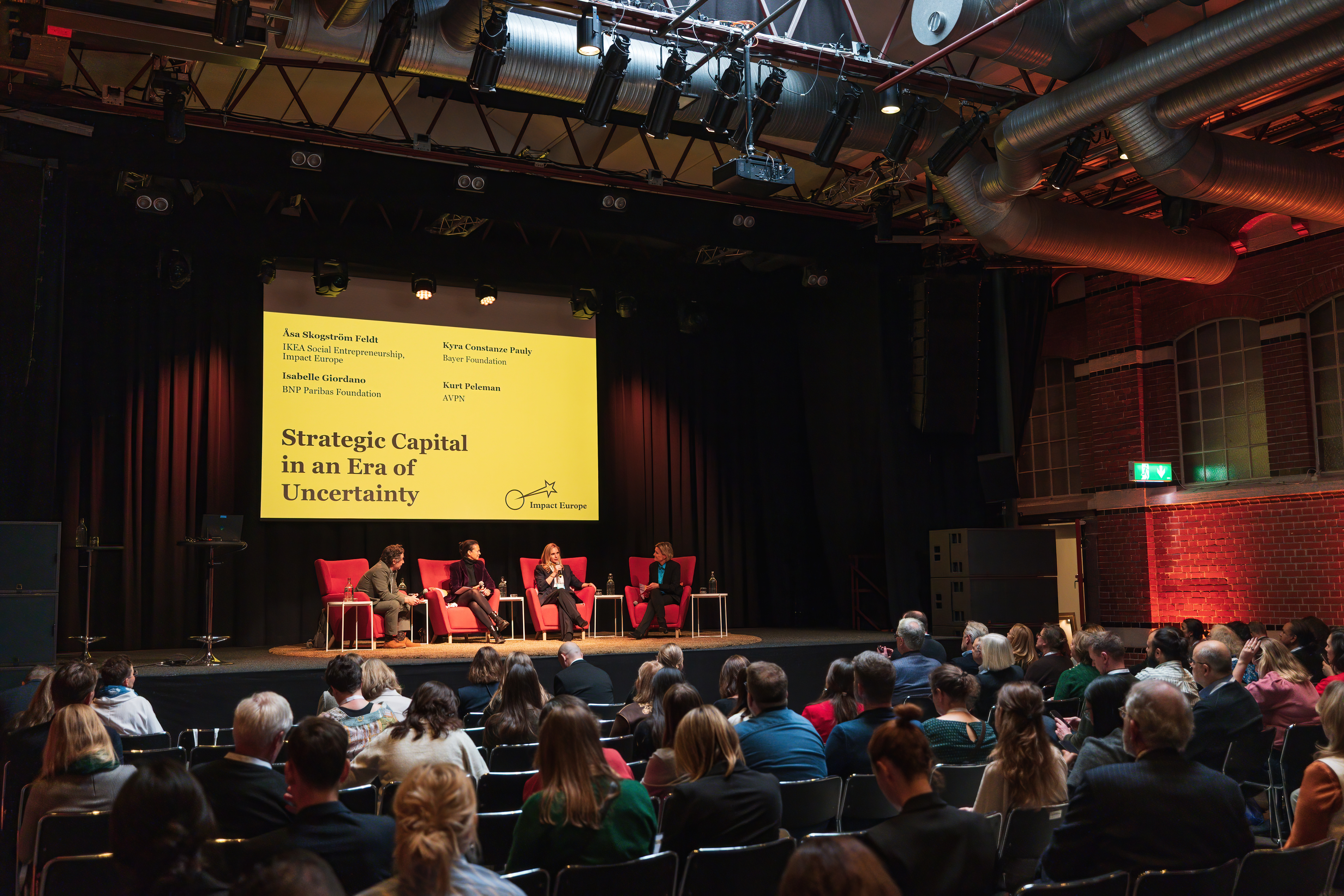
The previous day, while the sun was still shining across the chilly post-industrial landscape of Malmö, Angela Wiebeck, on just her 12th day in the job, had opened the event, welcoming the 670 delegates from Europe and further afield.
“We are grant makers, venture philanthropists, impact investors, fund and asset managers, capacity builders, social enterprises, corporations, EU institutions, academics and more, a community committed to deploying capital for a fair, more impactful world,” she said.
She gave a special welcome to those joining from the conflict zones of Ukraine, Palestine and Lebanon (Impact Europe regularly works with EU neighbouring countries in the Middle East and North Africa). “Thank you for making the journey, and more importantly, for the extraordinary work you do under extremely challenging circumstances.”
We should be moving like our house is one fire, because it kind of is
Referring to the multiple crises facing the world, she urged a positive approach. “This is not the moment for us to step back. This is the moment for us to lean in,” she said. “Yes, the headwinds are real, but opportunity is emerging in powerful ways. The question is, will we seize it together, and how can we use our catalytic capital to make it easier for others to come in after us, ultimately unlocking the trillions we need for a green, fair and inclusive economy.”
At a time when the SDG funding gap continues to grow (most recently estimated at US$4tn for developing countries alone), and with only 17% of SDG targets on track, “the urgency is real”, she said.
“Many major donors, including in Europe, are reducing foreign aid budgets and the list goes on. These are sobering facts, but they're also why I'm here after 25 years in finance and sustainability and renewables. I want to put my experience to work where I can truly move the needle.”

Wiebeck (pictured above) highlighted some of Impact Europe’s recent successes, including the lobbying work that led to this week’s revision of the Sustainable Finance Disclosure Regulation (SFDR) to include a defined impact category. She also said the network led by example by deploying EU funding and mobilising further capital from members to support social enterprises in Ukraine, Georgia and Armenia. This was proof, she said, that “catalytic models work even in contexts of extreme stress.”
She pointed to initiatives across the world that gave cause for hope – for light in dark times. “There’s so much momentum across Europe and globally,” she said. The SDG Outcomes Fund developed by UBS Optimus Foundation and Bridges Outcomes Partnerships, was one example, which this summer reached its US$100m target.
She also flagged the UK’s new Office for the Impact Economy which “aims to unlock billions for community regeneration, affordable housing and place-based impact, potentially steering institutional investors, including pension funds, towards impact investing”.
And globally, there was rising momentum to raise capital for small and medium enterprises, “the backbone of inclusive development”, she said, pointing to the IPAE 3 Fund in which the European Investment Bank had invested more than €15m to back high growth SMEs across West Africa and Madagascar.
Wiebeck said: “We are helping shape ecosystems so that more capital can flow where it’s needed most.”
Concluding the opening address, Leslie Johnston said that despite the global crises, “we are still stuck in, we are still doing this, we are still committed, we are still focused on impact”. She added: “So even though it's cold here, it's actually a very warm and exciting opportunity.”
Here are some insights that Pioneers Post picked up during the event.
Signs of hope at COP30
Leslie Johnston, in her role as CEO of the Laudes Foundation, was just back from the COP30 event in Belém, Brazil. She said: “It was fascinating, inspiring and depressing, all in one.” But she wanted to point out one key takeaway relevant to the Impact Europe network. “While the negotiators are just fluffing about not really getting much done, where I saw the real energy was in the private sector – the investors, the businesses that actually see real opportunities in the climate transition,” she said. “That was really exciting, because there's so much energy, there's money to be made. It reminded me of why we do what we do as investors for impact.”
Shiva Dustdar, head of the EIB Institute at the European Investment Bank (EIB), the multilateral financial institution run by the European Union, said the bank had a delegation in Belém and was definitely “staying the course on climate”. It was the only multilateral bank that didn’t have the US as a shareholder, she said. The bank had just published its second climate roadmap, every deal that the EIB Group did was in line with the Paris agreement, and it was targeting that at least half of its investments would go towards positive climate action and environmental sustainability, she said.
Faith-based investing: don’t forget the Sisters
A breakout session on faith and impact examined the influence of religions including Judaism, Islam and Catholicism on attitudes to investment. To date, participants noted, Catholicism had often been absent from discussions within the impact investing community. Chair Carol Tarr, founder and partner at Non-Extractive Capital, highlighted that nuns had been committing increasing amounts of funds to impact in recent years, including the Franciscan Sisters of Perpetual Adoration in Wisconsin who began impact investing in 2018, partly motivated by the sisters’ increasing age and declining numbers, which made them reconsider how they could continue their work with the assets that they had.
What’s more, earlier this month, Tarr said, the sisters had transferred land that they owned back to a Native American tribe for $30,000, the exact price they had paid for it in 1966, which, they said, was now just 1% of the land’s current value. Franciscans took a vow of poverty, pointed out Tarr, and, with Catholic teachings about how finance should be used, we should think about their potential contribution to impact financing.
Are we idealists or realists? Or is it simply semantics?
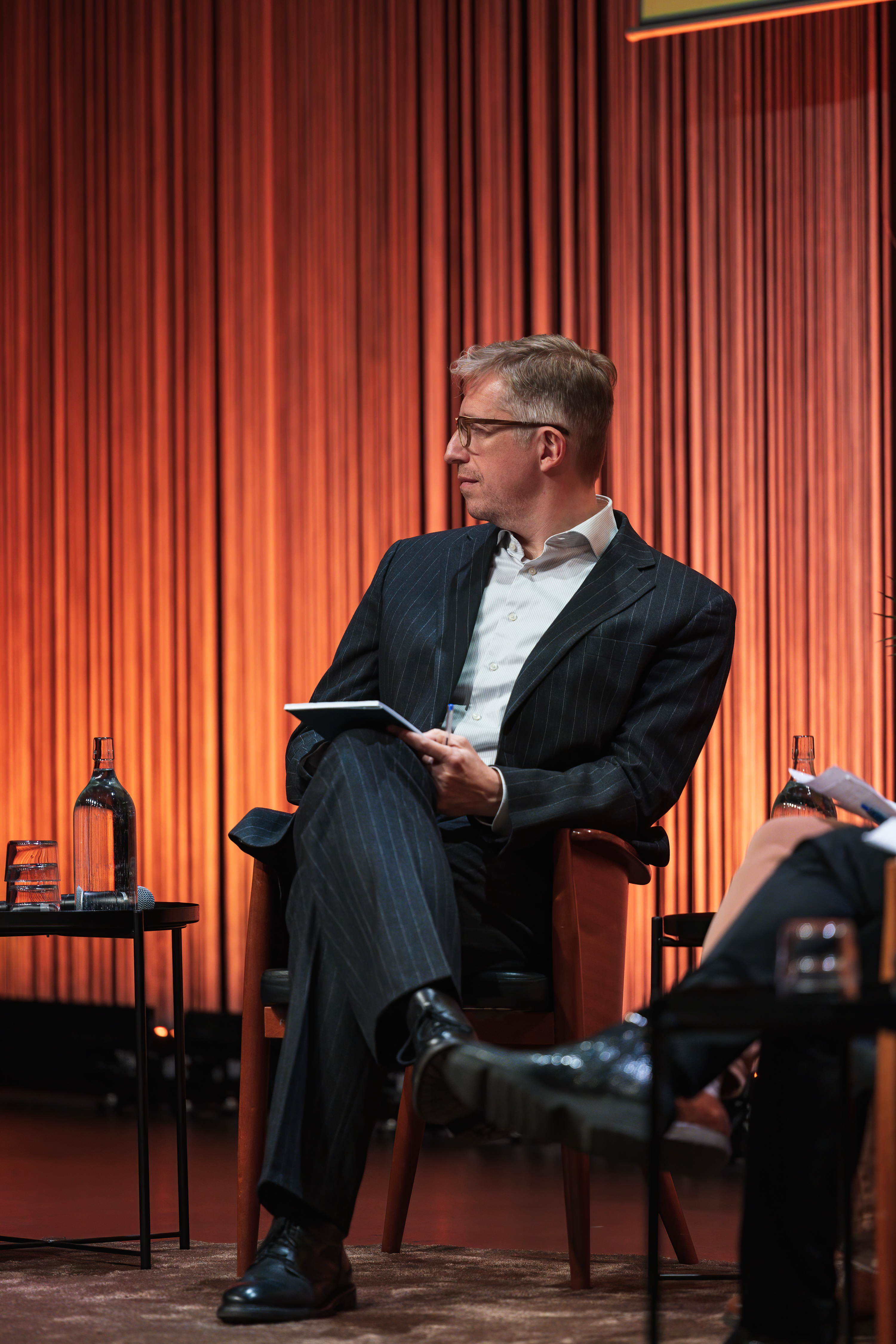
“We are in the impact investment space because we are idealists,” suggested Lars Jannick Johansen (pictured), founder of Den Sociale Kapitalfond, during a panel discussion examining the growth capital gap in Europe for enterprises wanting to scale up.
“As idealists, we want to disrupt things,” he said, “but disruption is not enough.” Instead, he said the impact movement must look at transforming rather than simply disrupting the existing system, but “our idealism stands in the way of that”. Impact investors should sometimes take a more pragmatic, market-oriented approach, he said, in order to get money to where it was most needed.
Yet the panel chair, Imène Maharzi, Weastem co-founder, disagreed. She said: “I would strongly question the fact that anybody active in impact is an idealist. We are the realists, and thinking that life can go on with business as usual as it used to be 20 or 30 or 50 years ago, that’s idealism, that’s a dream and a myth. This is a little music that keeps on being sung by a lot of traditional players, that people in impact are the idealists, and I strongly disagree.”
Malmö believes in a brighter future
Malmö is the third largest Swedish city and aligns itself with other ‘impact cities’ around Europe. The day before the main conference opened, delegates were welcomed to the “Malmö Generate District”, the regeneration zone. The host, Katja Wessling, a leadership consultant and native of the city, explained that the area hosted incubators for new businesses, a media innovation centre, and many other activities to develop the municipality. “The city is transforming,” she said. Previously focused on industry, the city now hosts several higher education institutions and is proud of its booming SMEs. Its youthful, multicultural population was emphasised many times.
Welcoming delegates, first deputy mayor Stefana Hoti, said: “Malmö is the city of people who care, people who are ready to work together across sectors, across borders and perspectives, to build cities that are not only smarter, but also fairer, greener and more humane. So, from all of us in Malmö here, a warm welcome to a city of ideas of contrast and courageous collaboration.”
New chair for Impact Europe in 2026, and plans for the next Impact Week

Impact Europe will have a new chair from June next year. Leslie Johnston announced that she would be handing over to Markus Freiburg (pictured), founder and CEO of FASE (and an occasional contributor to Pioneers Post).
The next Impact Week is not likely to take place until the first quarter of 2027, said Angela Wiebeck, giving Impact Europe enough time to examine what it was offering and see if it was what members really needed.
Photos courtesy of Impact Europe (credit: Christoffer Wannholm)
| Ready to invest in independent, solutions-based journalism?
Our paying members get unrestricted access to all our content, while helping to sustain our journalism. Plus, we’re an independently owned social enterprise, so joining our mission means you’re investing in the social economy. |


